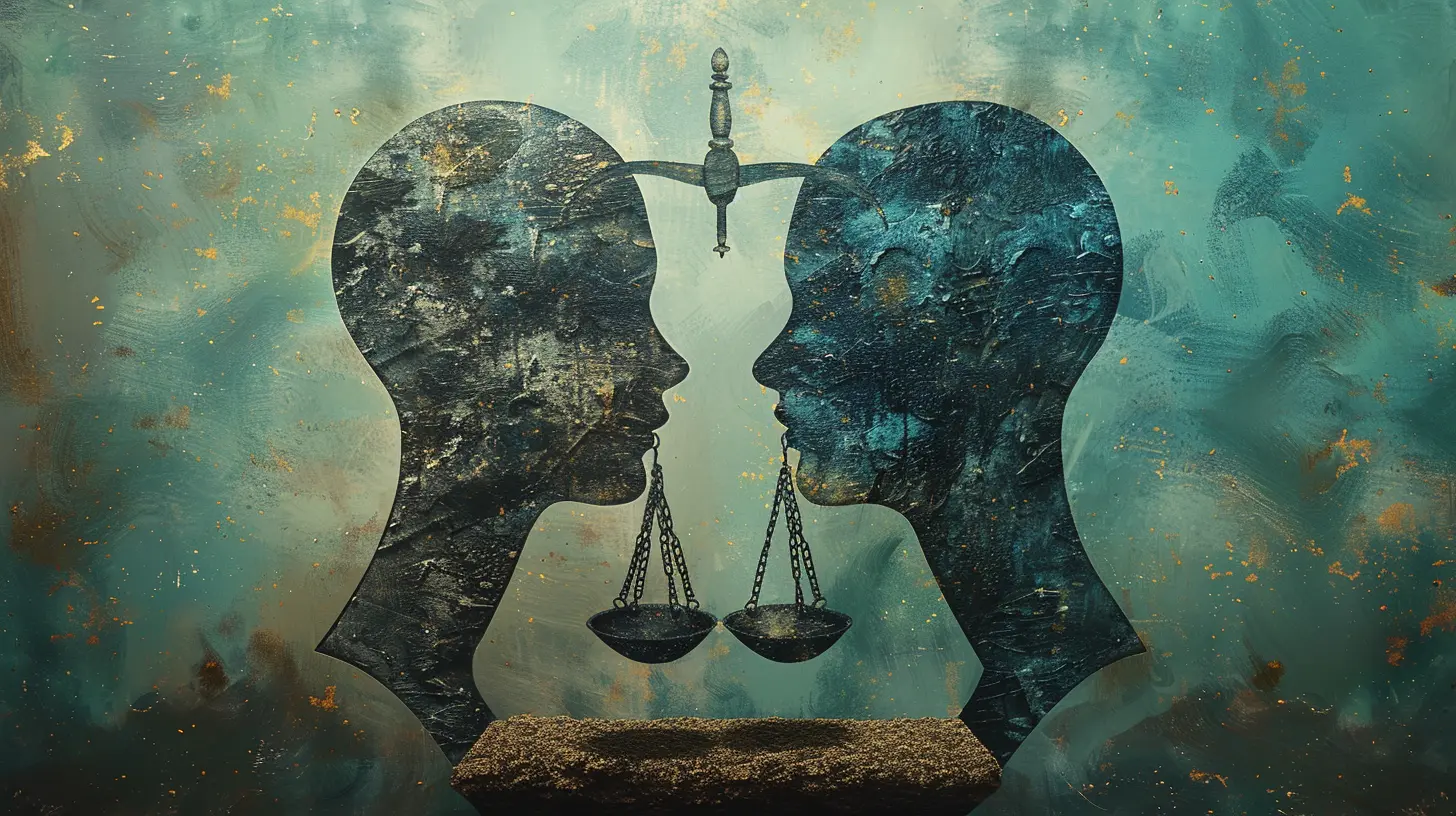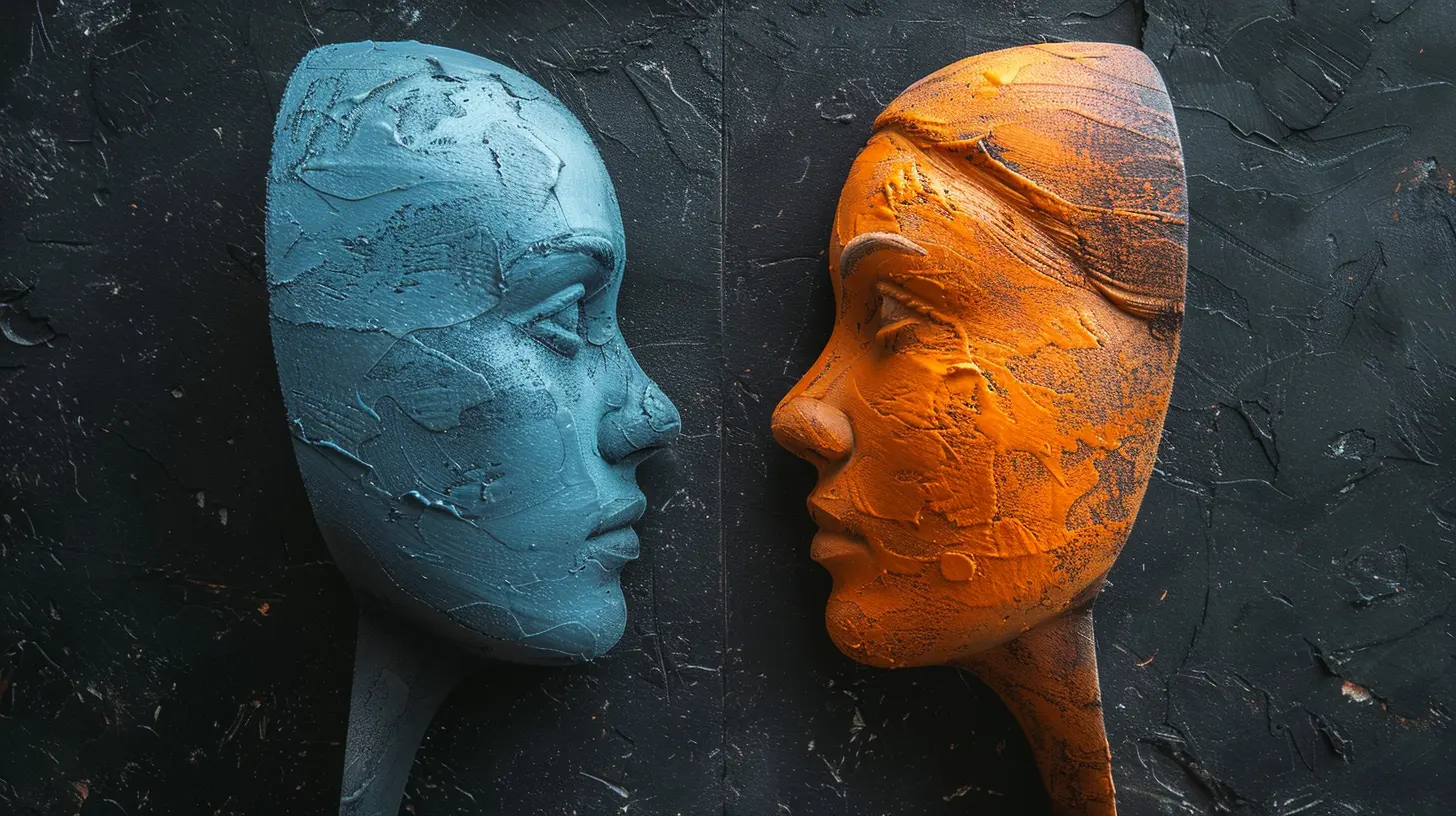Strategies for Navigating Negative Social Comparisons
5 August 2025
Ever found yourself scrolling through social media, sipping on your slightly cold coffee, and instantly feeling like your life’s been stuck in “meh” mode while everyone else is apparently living their best lives?
Yeah, you’re not alone.
Comparing ourselves to others is one of those deeply human things we all do, kinda like turning into a detective when someone texts “We need to talk.” But when those comparisons start souring our mood, eroding our confidence, and leaving us in an emotional puddle—well, that's when it’s time to hit the brakes.
In this article, we’re going to dive into the wild world of social comparisons and unpack some down-to-earth, totally doable strategies for navigating the negative kind. Think of it as emotional GPS for getting your groove back.
What’s the Deal With Social Comparison Anyway?
Let’s break it down. Social comparison is that mental habit of measuring ourselves against others. Psychologist Leon Festinger (fancy name, right?) coined the term way back in the 1950s. It’s not all bad—it can motivate us, give us benchmarks, or help us figure out our place in the world.But the problem kicks in when these comparisons turn into a mental game of “Why am I not as successful/smart/ripped/traveled/happy as them?”
Spoiler alert: That game has no winners.
The Double-Edged Sword of Social Media
Here’s the thing about social media: it’s a highlight reel. It’s everyone’s top 10 moments, filtered through Valencia or Paris. It's not real life—it’s curated life.But when you’re stuck in your sweatpants, binge-watching a show you’ve already seen, and someone posts a pic from Bali with a caption like “just living, loving, and laughing,” it hits differently.
Social media magnifies our habit of comparing like it’s holding a cosmic magnifying glass over our insecurities. And guess what? Most of what we’re comparing ourselves to isn’t even the full story.
So, Why Do Negative Comparisons Hurt So Much?
Because they attack our sense of self-worth. When we constantly feel like we’re falling short, our brain starts collecting “evidence” that we’re not good enough.It’s like your inner critic becomes a lawyer, building a case against you based on someone else’s life.
Not very fair, huh?
Also, let’s not ignore the fact that our brains are wired with a negativity bias—we’re more tuned in to threats and shortcomings than to the good stuff. So, every time we think someone’s doing better than us, our brain throws a mini pity party.
1. Catch Yourself in the Act
The first step to stopping negative comparison? Noticing when it’s happening.It’s like catching your hand in the cookie jar. The moment you realize your thoughts are spiraling—“I’ll never be as fit as her,” “He’s already successful at my age”—pause.
Don’t shame yourself. Just observe it like you’re watching clouds float by.
Ask yourself:
- “Is this thought helping me or hurting me?”
- “Am I seeing the full picture?”
- “Would I say this to a friend?”
Awareness is half the battle. Once you catch the comparison thief in the act, you’re in a better spot to choose how you respond.
2. Curate Your Social Media Feed Like a Boss
If you’re constantly comparing your behind-the-scenes to someone else's highlight reel, it might be time to Marie Kondo your feed.Unfollow or mute accounts that trigger insecurities. It’s not petty—it’s self-preservation.
Follow people who keep it real, who talk about setbacks and growth, not just success. Fill your feed with inspiration, not intimidation.
Remember: you don’t owe anyone a follow. Your mental health > their curated grid.
3. Shift From Competition to Appreciation
We’re not in a race, even though it can feel like life is one big, messy game of chase.Instead of viewing someone’s success as a threat, try reframing it. Their new promotion, engagement, or travel adventure isn’t proof you’re failing—it’s proof that good things are possible. And if it’s possible for them, it’s possible for you.
Celebrate others without turning it into a scorecard. Life’s not a one-size-fits-all situation. We’ve each got our own journey, and spoiler: it’s okay if yours looks different.
4. Practice Gratitude (Yes, It’s a Cliché, But It Works)
Gratitude isn’t just for Thanksgiving. It’s a game-changer when it comes to shifting focus away from what you lack to what you already have.Start simple. Every day, write down three things you’re grateful for. They don’t have to be grand—the smell of fresh coffee, your dog’s weird sleeping position, or that one friend who always sends memes at just the right time.
When you train your brain to notice the good stuff, comparison loses its edge.
5. Get Clear on Your Own Values and Goals
Often, we compare ourselves to people chasing entirely different dreams. That’s like comparing a fish to a bird and wondering why you’re not flying.Ask yourself:
- What actually matters to me?
- What kind of life do I want?
- Am I chasing something because it looks good—or because it feels right?
When you’re rooted in your own goals and values, someone else’s highlight reel feels less threatening. You’re less likely to copy-paste their life and more likely to build your own unique blueprint.
6. Limit Your Exposure to Triggers
News flash: You don’t have to consume everything that’s out there.Got a friend who always brags? Take some distance. TV shows that make you feel like your life’s dull? Skip ‘em. Family members who constantly compare you to your cousin who “just bought a house”? Limit those convos, set boundaries.
Protect your peace. You’re allowed to control what you let into your mental space.
7. Talk It Out
Sometimes we just need to hear ourselves think—or better yet, get a reality check from someone we trust.Open up. Tell a friend, therapist, or even your journal what’s going on in your head. Talk about that sinking feeling you get when you scroll or when a peer achieves something big.
Chances are, you’ll hear “me too” more often than you expect. We’re all wading through the same feelings. And real, honest connection beats likes and filters any day.
8. Celebrate Your Own Wins—Big and Small
Comparison steals your thunder. Counter it by actively celebrating your achievements, even the tiny ones.Got out of bed when you really didn’t want to? Win. Sent that difficult email? Win. Resisted the urge to doomscroll? Big win.
Create your own “ta-da” list (instead of a to-do list). Write down things you’re proud of, no matter how small. It shifts your focus to progress instead of lack.
9. Remind Yourself: You’re Not Seeing the Whole Picture
People can have gorgeous Instagram feeds and messy behind-the-scenes. Trust me—no one’s life is as perfect as it looks online.That influencer who always looks flawless? Might be struggling with anxiety. That couple who always posts #couplegoals? Could be arguing constantly off-camera.
Comparison loses power when you remind yourself that you’re comparing your full reality to someone else’s edited snapshot. It’s a bit like judging a movie by a trailer—it just doesn’t show the full story.
10. Turn Comparison Into Inspiration
Instead of letting comparison crush your soul, flip it. Let it fuel you.See someone doing something amazing? Ask yourself:
- “What about this inspires me?”
- “What can I learn from them?”
- “How can I apply this energy to my own life?”
Let others light the path, not block it. You’re not in their shadow. You’re just warming up.
Final Thoughts: You Are Enough (Seriously)
At the end of the day, the only person you should be competing with is who you were yesterday.Negative social comparison might always pop up (we’re not robots, after all), but that doesn’t mean it has to run the show.
When you shift your perspective, get clear on your own journey, and practice a bit of self-compassion, comparison stops being the enemy. Instead, it just becomes another human thing you’re learning to navigate—like parallel parking or assembling IKEA furniture.
And hey, you’re doing just fine.
all images in this post were generated using AI tools
Category:
Self HelpAuthor:

Matilda Whitley
Discussion
rate this article
1 comments
Layla Mitchell
Great insights! Acknowledging our worth is vital in combating negative comparisons.
August 17, 2025 at 2:57 PM

Matilda Whitley
Thank you! Embracing our worth is indeed essential in overcoming negative comparisons. I'm glad you found the insights valuable!


